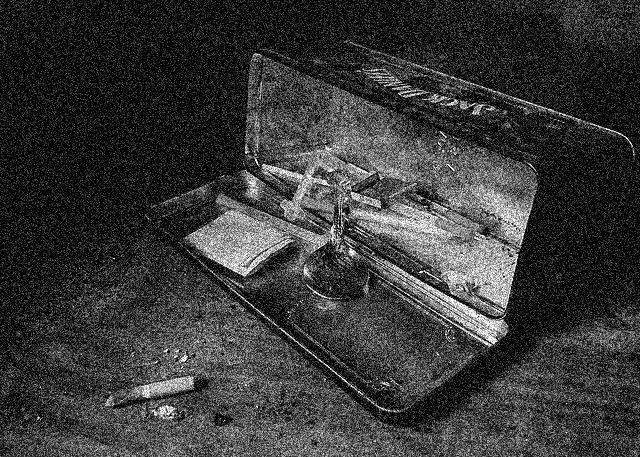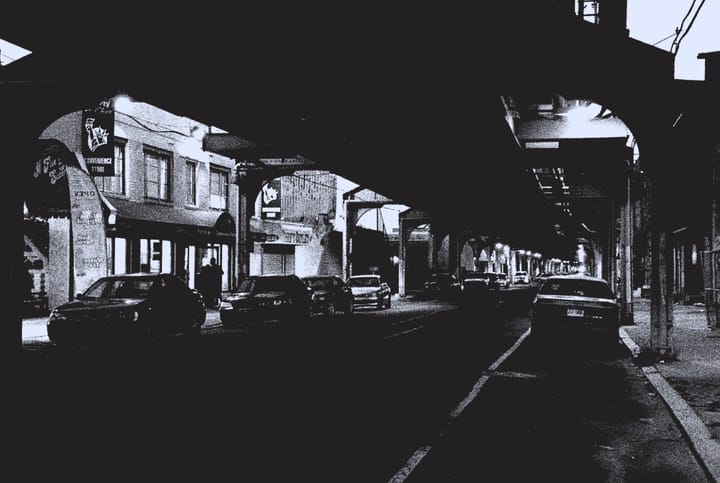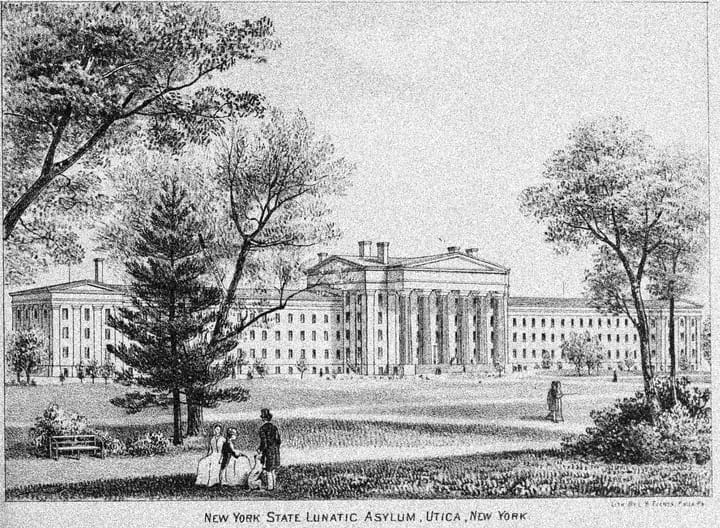One or the Other
Letting people struggling with drug abuse run themselves into a decrepit state with no social provisions or adequate forms of drug treatment is a tragic mistake. So too is trying to revive a drug prohibitionism that only ever works at the cost of extending the rot of contemporary society.

One of the more pernicious features of the American love/hate affair with psychoactive drugs is the rigidly schizoid frame that structures much drug discourse. For one side, drugs are somewhere between “miracle cures” and “things that we’ve made way too big a deal of,” and thus they should be decriminalized and/or legalized. For the other, they are a terrible scourge, a great social danger, and evidence of individual moral failure, and thus they should be heavily regulated and prohibited. Americans have been prey to this dizzying alternation for well over a century, and part of the aim of my recent book, Quick Fixes: Drugs in America from Prohibition to the 21st Century Binge, is to demonstrate that the dominant forms of both peddling and prohibition are reductive, irrational, and quite harmful in their individual and social consequences.
How surprising, then, to find Compact writer and researcher Leila Mechoui, in her recent review of the book, place me firmly on one side of this divide and frame the book as affirming the “consensus” position in favor of decriminalization and harm reduction. Despite the fact that I “explicitly reject libertarianism,” in her own words, I also “clearly favor libertarian policies.” To uphold this contradiction in my work, she ignores the part of the book’s conclusion called “The Blinkers of Liberal Reformism,” where I write:
All psychoactive substances could be legal and destigmatized, with medically accurate information about them and perfectly safe routes of administration widely available, but without alleviating poverty, unemployment, stress, and despair, the primary problems we associate with drugs would all still be with us (and arguably would be worse).
Being unclear how such a statement could be made in a “pro-harm reduction” book, I’m left to conclude that Mechoui’s review is evidence of just how strongly all drug discourse exists within that dominant schizoid frame.
As always, basic nuance and important details are lost when it’s only one or the other. In 2001, the American decriminalization movement was energized by the example of Portugal, which decriminalized drug use and saw a decrease in both drug deaths and street dealing. The only state in the United States that has decriminalized psychoactive drug use is Oregon (a fact that makes it difficult to hold up decriminalization as the “consensus” position, as Mechoui does), and it hasn’t gone well there. But the case of Oregon can only be taken as clear evidence that, as she writes, “the current permissive paradigm will leave behind only ravaged lives,” if the marked differences between it and Portugal’s experiment are ignored. Portugal’s decriminalization experiment is still quite paternalistic, often basically forcing addicts into treatment; Oregon meanwhile has scarce funding for treatment and few mechanisms for compelling addicts into it. “Decriminalization” can and does mean many things; “good” and “bad” are not the only or the best terms to make sense of it.
There are other quibbles I have with the review, but it would quickly get pedantic and uninteresting to cover all of them. Instead, I’d like to address Mechoui’s somewhat surprising turn at the end of her review to a full defense of Prohibition as a project. To fault me as a “harm reductionist” (which I obviously disagree with) and hammer on how dangerous fentanyl and methamphetamine are (no argument from me there) is one thing; but to then go and defend not just some forms of drug interdiction as necessary but also capital P Prohibition is quite another. I wonder if she is prepared to go all the way in defending Prohibition—not simply to marvel at the beauty of temperance halls, but to reckon with the full scope of what Prohibition wrought and say, “Yes, I want that.”
In the book, I spell out pretty clearly the ways in which Prohibition can be considered a success, as a way of fairly offering up a balance sheet. Per capita alcohol consumption was lower in the 20s than it was in any other decade of American history and the saloon-based culture of male drinking was broken for good. But Prohibition also incentivized the organization of crime and the organization of corrupt bureaucracies to deal with that crime, it led to unsafe alcohol consumption (50,000 people were paralyzed for life from drinking adulterated Jamaican ginger extract), and it unleashed new forms of police and militia terror enacted on poor people. It was eventually repealed not only because it failed in its rather ambitious, stated aims but also because it led to a range of new social perversions.
I understand that for the purposes of a review, a somewhat exaggerated defense of Prohibition is a useful way of shadowboxing a “harm reductionist.” But I find it difficult to believe that anybody could sit down with, say, Lisa McGirr’s recent The War on Alcohol and be so glowing about those beautiful halls. Which leads me again to wonder what else is going on here.
The temperance movement was about many things. Woman’s Christian Temperance Union reformers could lambast lower-class, immigrant men, evangelicals could aim to close the doors of hell forever, and business owners could discipline the workforce. It appealed to many disparate concerns and gathered together an odd coalition. What united these various groups was a strong reaction to the social ills that industrial capitalism had wrought. In a country that did not get a Labor Party or strong unions, the temperance cause made a lot of sense: it offered a moral response to a visibly degrading society in lieu of a properly political one. This was ultimately also why it failed: Prohibition failed because it wanted to change capitalist society through a direct moral paternalism rather than through mass, working-class politics.
I share many of Mechoui’s concerns about liberal drug reformism, and also the broader concerns common to many Compact writers about the beliefs and commitments undergirding that blinkered reformism. But in reacting to the scathing moralism of the liberal-Left, Mechoui points in the direction not of working-class politics but an opposite moralism—a perfectly understandable counterbalance but ultimately one trapped in the same moral rage cycle.
Letting people struggling with drug abuse run themselves into a decrepit state with no social provisions or adequate forms of drug treatment is a tragic mistake. So too is trying to revive a drug prohibitionism that only ever works at the cost of extending the rot of contemporary society. It doesn’t need to be one or the other.
■
Benjamin Y. Fong is the author of Quick Fixes: Drugs in America from Prohibition to the 21st Century Binge (Verso, 2023).



